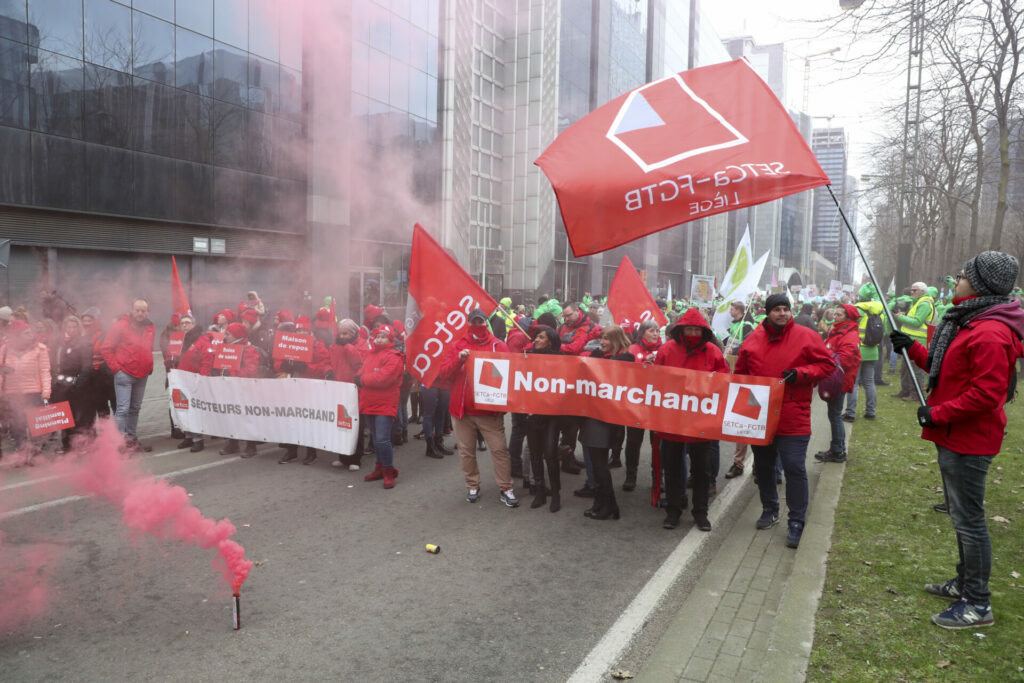The leader of one of Belgium's largest trade unions has condemned a draft law proposed by the country's Minister of Justice, claiming that the bill poses a "danger to the right to freedom of opinion" and is potentially worse for Belgian workers than "an attack on automatic wage indexation."
The legislation proposed by Minister Vincent Van Quickenborne (Open VLD) restricts the ability of certain convicted criminals to engage in peaceful protests. In an interview with Le Soir, President of the General Labour Federation of Belgium (FGTB-ABVV) Thierry Bodson suggested that the bill further highlights the fact that Belgium's leaders "place the freedom of trade above social rights."
"We are facing a fundamental problem," Bodson said. "The right to freedom of opinion, via the right to strike or protest, is in danger... Some judges place the freedom of trade above social rights. And the phenomenon is likely to increase because, with this law, we are giving them an additional tool."
A 'more humane' judiciary?
The bill, which is set to be discussed and voted on in a Chamber of Representatives committee hearing on Tuesday, recommends severe penalties – including a potential three-year ban from participating in public protests – for individuals convicted of committing certain proscribed acts during demonstrations or public events.
Such acts include setting objects on fire, destroying property, inflicting physical harm on other individuals and threatening an attack against another person or property.
According to Bodson, the law – which has been touted by Van Quickenborne as encouraging "a more humane, faster and firmer judicial process" – in fact constitutes a mere fig leaf behind which the Federal Government will be able to further restrict workers' rights.
Related News
- ECB rate hike condemned as 'reckless' by Europe's major trade union
- Climate coalition protests against Flemish Government in Brussels
"The acts for which this sentence could be pronounced are not just serious acts," Bodson explained. "The simple act of lighting a wooden pallet on a picket line, marking a façade or blocking a depot by preventing perishable goods from leaving could be punished under this law by a ban of up to three years [from attending] demonstrations."
Bodson's concerns were echoed by various lawyers' associations, including the Federal Institute for the Protection and Promotion of Human Rights (IFDH), which claimed that the bill raised "serious questions", specifically about "the necessity of the proposed sentence." It added that "the freedom to protest cannot be restricted lightly" and should only be restricted "in very limited circumstances."

